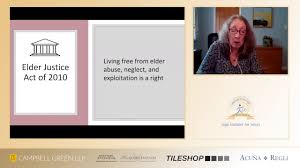Property owners now have the greatest concern when it comes to legal issues and property rights: getting rid of squatters. An estimated 1 million squatters reside in abandoned buildings across the United States.
In these situations, landowners look up the answer to the query, “Can police remove squatters?” I will explain the legal procedure for squatter removal and address any confusion for property owners in this post. Additionally, you will be aware of your property rights and the correct legal channels for handling squatters.
What Is The Legal Definition Of A Squatter?
As to the Law District, an individual who occupies unoccupied or abandoned properties without the owner’s permission is known as a squatter. They don’t have a lease with the property owner, nor do they have any legal ownership. This kind of condition frequently results from long-term ignored commercial premises, repossessed residences, or abandoned buildings.
What Legal Rights Do Squatters Have?
It’s crucial to comprehend the legal rights and safeguards squatters have under specific circumstances before delving into the topic of whether the police can remove them.
Adverse Possession:
In Oklahoma, a squatter may assert property ownership by adverse possession, provided they pay property taxes, live on the land constantly, and occupy it openly and continuously for 15 years. The duration may change based on the state.
The owner has two years to resolve the adverse occupation to assert legal title under Oklahoma adverse possession. Landlords should therefore routinely check their buildings to prevent significant losses.
Tenant Rights:
After occupying a property for a considerable amount of time, squatters may be able to assert their right to rent. In this situation, tenants may be entitled to various protections against an abrupt eviction by the authorities or property owners.
Is It Possible For Police To Take Squatters Off Your Property?
If the property owner pursues the correct legal eviction procedure, then police have the authority to remove squatters from the area. Civil court proceedings prevent police from evicting squatters directly at the request of the property owner. They guarantee nonviolent evictions and uphold court decisions, unless there is a possibility of criminal activity. If the squatters refuse to leave or the situation gets worse, property owners are required to submit a complaint. To preserve both individual and property rights, police use court orders or warrants to evict obstinate squatters. Depending on state regulations, squatters may have different rights and processes.
When Is It OK for Police to Forcibly Remove Squatters?
As a landowner, you want to be able to evict unauthorized residents from your property as soon as possible. Although you would rather avoid drawn-out court eviction procedures with law enforcement, there are several circumstances in which police are only able to physically remove squatters from a property without a court order:
Recently deserted Properties:
Squatters may be removed by police as criminal trespassers without being granted squatter’s rights if they relocate to a property that has just been deserted. Although it varies, it usually happens 48 to 72 hours after the vacancy.
Owner Consent:
Police may be able to remove a trespasser as long as they get proof from the property owner proving they did not consent to the squatter’s presence, such as a No Trespassing order.
Abandoned Properties:
Under public nuisance regulations, the police can evict squatters from abandoned properties that present a risk to public health or safety without following the required legal procedures.
Properties for Rent:
Police can remove squatters as criminal trespassers from rental units if the leaseholder still has exclusive occupancy rights, provided that the squatters move in under a legitimate lease arrangement with another tenant.
Dangerous Conduct:
Without waiting for a formal eviction, police officers have the right to evict squatters who are involved in unlawful or dangerous activities, such as drug dealing, gang activity, or violence, right away.
Why Would the Police Refuse to Evict Squatters?
Police might not be able or willing to immediately forcibly remove squatters for several important reasons, including:
Established Occupancy:
Until the owner completes a formal civil eviction process and grants a court order for removal, police cannot remove squatters who have established residency by residing at the property for a lengthy period.
Absence of Trespassing Proof:
Police cannot treat squatters as criminal trespassers if the property management or owner cannot produce the necessary paperwork, such as a lease agreement, No no-trespassing order, or evidence of a recent vacancy.
Risk of Violence:
If there is a possibility that removing squatters will provoke violence or endanger both the squatters and the officers, the police may decide not to do so. Instead, they might suggest pursuing a civil eviction.
Health Risks:
When a property has gotten very unclean, authorities may decide not to remove squatters because of potential health risks and may instead advise the owner to file a legal lawsuit.
COVID Restrictions:
Because of the potential for virus transmission, several jurisdictions limited the amount of time that law enforcement could physically remove individuals from their homes during the COVID-19 epidemic.
In Summary:
Property owners find it difficult and frustrating to deal with squatters. While police intervention is restricted in the absence of appropriate legal papers and court orders, regaining the title of your property and regaining peace of mind can be achieved by following the correct legal procedures.
However, working with property management firms can be a great method to lessen the strain of handling tenant-related concerns, such as rent collection, tenant screening, and eviction procedures.



